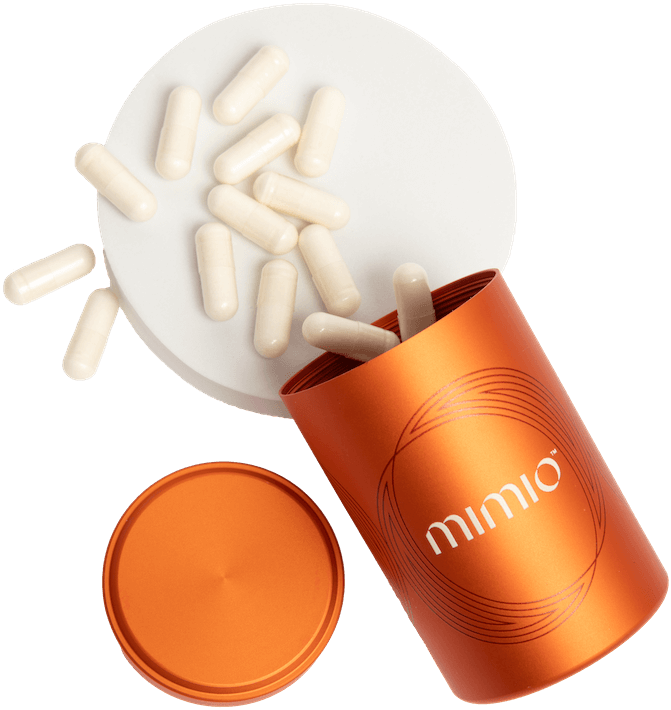Aging can be a beautiful journey—if our cells cooperate. But behind the smile lines and silver streaks, there’s a hidden player quietly undermining our path to a longer, healthier life: the loss of proteostasis. Not ringing a bell? Proteostasis, short for protein homeostasis, is your body’s quality control system that keeps cells running smoothly. When this system falters, it sets off a cascade of problems that can accelerate aging and fuel age-related diseases. Let’s unpack why maintaining proteostasis is crucial and how its breakdown could be at the root of many health challenges as we age.
What is Proteostasis?
Think of proteostasis as your body's quality control system. Proteins are the tiny machines that do nearly all the work in our cells. From repairing damage to building tissues, proteins need to be in tip-top shape to do their jobs. Proteostasis ensures that proteins are made correctly, folded into the right shapes, and recycled when they're no longer needed.
- Production: Proteins are constantly being made in our cells based on genetic instructions.
- Folding: Newly made proteins must fold into specific shapes to work correctly.
- Maintenance: Damaged or misfolded proteins are either refolded or broken down to prevent cellular chaos.
But as we age, this system starts to malfunction. It’s like the cell’s version of a recycling center shutting down—things get messy fast.
The Downside of Aging: Loss of Proteostasis
With age, the balance of proteostasis starts to tip. Our cells lose their ability to properly manage protein quality, leading to the accumulation of damaged or misfolded proteins. This decline in protein control is called the “loss of proteostasis,” and it’s a major hallmark of aging. When proteostasis goes awry, it doesn’t just clutter up your cells; it can trigger inflammation, oxidative stress, and even cell death—conditions that are prime suspects in many age-related diseases.
Age-related Diseases Linked to Proteostasis Loss
So, why should you care about a few misfolded proteins? Because they’re linked to many diseases, including:
- Alzheimer’s Disease: Abnormal proteins, like amyloid-beta, accumulate and form plaques in the brain, disrupting normal function.
- Parkinson’s Disease: Misfolded proteins can clump together, damaging brain cells and causing motor symptoms.
- Type 2 Diabetes: Mismanaged protein folding in insulin-producing cells can lead to improper insulin regulation.
- Cancer: Loss of proteostasis can affect how cells grow and divide, contributing to uncontrolled cell growth and tumor formation.
The list doesn’t end there. Loss of proteostasis is implicated in cardiovascular diseases, immune system decline, and many other conditions that creep up as we age.
How to Support Your Body’s Proteostasis: Practical Tips
There are ways to help your cells maintain proteostasis, even as the years stack up. Here’s how you can give your cells the support they need:
- Eat a Balanced Diet: A diet rich in antioxidants, like those found in colorful fruits and veggies, helps reduce oxidative stress that can damage proteins. Whole grains, nuts, and seeds also offer vital nutrients that support cellular health.
- Exercise Regularly: Physical activity promotes cellular cleanup processes, including autophagy, which helps recycle damaged proteins. Think of exercise as hitting the reset button for your cells.
- Manage Stress: Chronic stress can wreak havoc on proteostasis. Incorporating stress-reducing activities like meditation, yoga, or even a daily walk can support your body’s internal balance.
- Stay Hydrated: Proper hydration helps maintain cellular functions, including proteostasis. Plus, it’s one of the easiest ways to keep your cells happy.
- Consider Supplements: Some supplements have shown promise in supporting cellular health. Mimio’s biomimetic cell care formula, for example, is designed to mimic the effects of fasting—a known booster of cellular cleanup processes like proteostasis. Learn more about Mimio Biomimetic Cell Care.
The Future of Proteostasis Research
Scientists are actively exploring ways to boost proteostasis as a strategy to combat age-related diseases. From new drugs that enhance protein folding and degradation to lifestyle interventions like intermittent fasting, the goal is to extend healthspan—the period of life spent in good health—by keeping our cellular machinery running smoothly.
Research is ongoing, but the excitement is real. Imagine a future where age-related diseases are not just managed but prevented by targeting the very processes that age us.
Aging doesn’t have to mean accepting a slow decline in health. By understanding and supporting processes like proteostasis, we can take control of our longevity. Whether it’s through lifestyle changes or cutting-edge supplements like Mimio, you have the power to influence how gracefully you age. So, keep those proteins in line, because aging should be awesome, not a chore.



